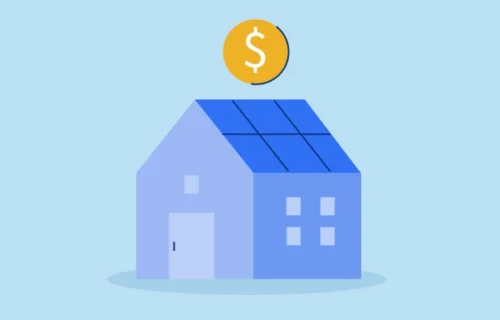
Connect with a Lima One expert today!
If you’d like to know more about this topic or see how it applies to your project, let’s talk.
The Denver Housing Market Has Finally Shifted
The Denver metro area has enjoyed massive popularity among top real estate investors for several years, which is a major reason it annually places among the hottest housing growth. A growing economy, strong job market, diverse and exciting lifestyle, and beautiful surroundings are just a few reasons why Denver saw increasing population growth rates for the past few years.
However, the Denver real estate market has begun to shift.
The Denver, Colorado Housing Market Has Shifted Toward Buyers
The residential real estate market in Denver continued to churn unimpeded even in the times of COVID-19. The rest of the country has experienced a tight housing inventory for the past year, but Denver is unique in that its housing crunch and tight inventory began before the pandemic. When COVID rocked the country’s real estate markets, Denver was already experiencing an average home supply of six weeks and an average of 38 days on the market.
Post-COVID, Denver’s average home supply dropped even lower. But recently, Denver’s seller’s market has shifted back toward the buyers.
Here's a look at some of the current housing stats for Denver:
- Median time on the market for all homes has increased by 30% year-over-year.
- Approximately 50% of Denver houses sold in November 2024 saw at least one price reduction before selling and 60% of sellers made at least one concession to buyers.
- Median single-family home prices have increased 5.3% between November 2023 and November 2024—compared to a 5.1% increase for the U.S. overall for the same period.
- Rent prices decreased 4.5% YOY to an average of $2100 /mo.

Denver’s Real Estate Inventory Is Growing
Denver has struggled with a tight inventory since 2011. In 2020, Denver’s incredible buyer demand and intense competition among buyers created the perfect storm for homes to sell quickly and prices to climb higher.
More homes sold in Denver during 2020 than ever before in a calendar year, which decreased the supply of homes leaving builders unable to keep up with the demand of new homes. For comparison, at the end of 1990 there were 11,839 homes for sale. In 2020, there were only 2,541.
At the end of February 2021, there were only 1,120 single-family homes and 904 multifamily homes available for purchase across metro Denver, according to a monthly update from the Denver Metro Association of Realtors.
However, according to the Denver Metro Association of Realtors, at the end of November 2024 there were 9310 total listings for both single and multi-family homes a whopping 39% boost from November 2023.
In comments accompanying the report, Amanda Snitker, chair of the DMAR Market Trends Committee, noted that while inventory is up, prices are fairly flat. She also noted that this higher inventory presents opportunities for buyers in Denver.
Denver Still a Real Estate Market to Watch
Despite the recent cooling of its real estate market US News & World Report named Denver as its top “Market to Watch” in June 2024 based on its growing “Housing Market Index” (HMI).
So, why is Denver still on the radar of home buyers and real estate investors?
For the past decade, Denver has boasted steady population growth, a low unemployment rate and a strong economy. Since 2010, Denver has seen a 25% increase in employment and a 17% increase in population.
Many experts believe the city's active lifestyle and central location will continue to draw employers and workers considering relocations. Colorado offers tax incentives to attract large employers, leading businesses and people to exchange the expense of living on the west coast for a more moderately priced area.
Even during the pandemic, Denver showed it could attract major corporate office users such as Palantir, Healthpeak Properties Inc., and LogistiCare Solutions LLC, as well as tech companies trading the bustle of Silicon Valley for the mountain ranges of Colorado.
It’s a destination for tech workers fleeing the pricey Bay Area and for metropolitan East Coasters looking for more expansive outdoor space. The new work-from-anywhere culture of the coronavirus pandemic is one of the top reasons Denver is experiencing its most competitive housing market in history.
One of Denver’s most attractive attributes is its low unemployment rate. From 2010 to 2019, Denver’s unemployment rate dropped from 8.7% to 2.7%. Of course, 2020 and COVID caused that downward trend to derail, with unemployment jumping from 2.7% to 7.4%. While it has dropped to 6.7% in February, Denver’s unemployment rate is still higher than the national average of 6.2%.
Denver’s diverse and exciting lifestyle is another huge selling point bringing people to the area. Everyone from millennials to retirees are flocking to Denver’s “down-home” atmosphere. There is no shortage of things to do in the Denver area, and the most popular activities speak to people of all ages.
There are tons of coffee shops, restaurants, and breweries. Sports fans have the options to sit on the first base line at a Colorado Rockies game, hit the ice with the Avalanche, catch a Broncos game, and sit courtside at a Nuggets game. Live music enthusiasts are just a stone’s throw away from Red Rocks Park & Amphitheater.
What Denver real estate investors can expect
While Denver’s housing market is no longer red hot, there may still be opportunities for real estate investors. A buyers’ market can be a great time to scoop up houses that investors believe will appreciate in value over the coming years. Additionally, the uncertainty around interest rates and the U.S. economy overall means the Denver housing market may shift quickly back toward sellers.
Real estate investors need to move aggressively when they find a property that makes the numbers work—with a certainty of financing behind them. Knowing their exposure through Lima One Capital's line of credit is one way to do this, and some investors may choose to pay cash on properties and then cash-out refinance after closing.
Investors should also consider build-for-rent strategies to create new housing stock, or multifamily bridge financing given the strength of that type of housing in Denver.
While inventory might be harder to find, investors with strong real estate investment strategies can still profit. It’s now more important than ever to have a lender capable of helping you:
- Secure a loan with the best price and maximum leverage for your next rental investment
- Close properties quickly and certainly
- Run your construction or rehab projects smoothly
If you’re interested in obtaining a loan for investment property in Denver, Colorado call us to learn more. We are experts in financing FixNFlip projects for investors looking to purchase and rehab an investment property, rental properties and portfolios, multifamily real estate investment opportunities, and new home construction for builders on urban in-fill, spec homes, model homes, and teardown/rebuild projects. Our team of experienced professionals will help guide you through how to get a new construction loan for your next investment.
Get started today and scale your rental property portfolio with Lima One, the nation’s premier lender for real estate investors.
Editor’s note: This blog has been updated as of February 13, 2025, for comprehensiveness.
Subscribe for More Insights
Get the latest industry news & Lima One updates.









